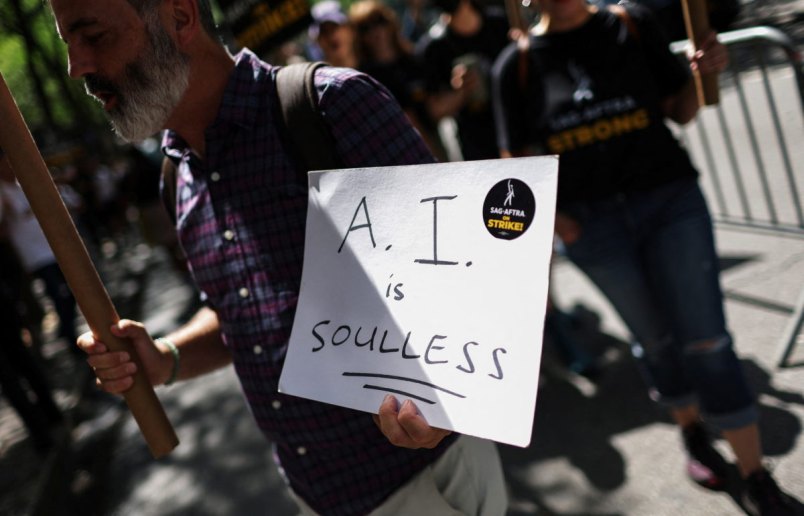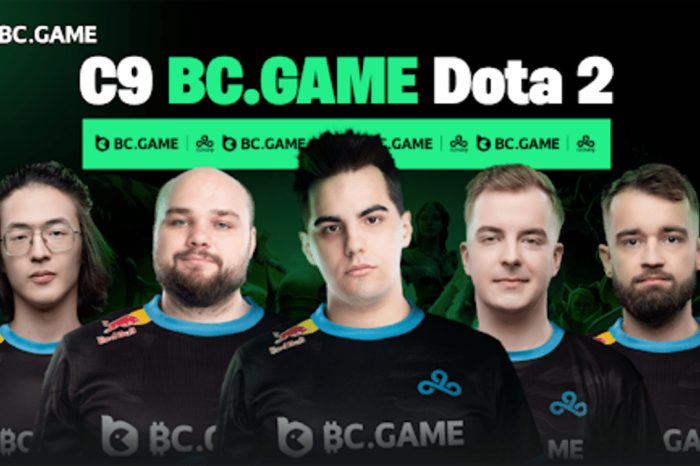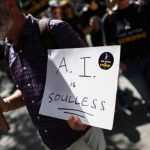Video game actors go on strike, saying AI threatens their jobs

In a move that echoes last year’s Hollywood strikes, video game voice actors and motion-capture performers have walked off the job, demanding stronger protections against the encroachment of artificial intelligence (AI) in their industry.
The strike, which began last week, targets major players like Activision, Warner Bros., and Walt Disney, following a breakdown in labor contract negotiations.
The video game voice actors and motion-capture performers on strike held their first picket on Thursday in front of Warner Bros to share their concerns about AI posing a major threat to their professions, Reuters reported.
“The models that they’re using have been trained on our voices without our consent at all, with no compensation,” “Persona 5 Tactica” voice actor and video game strike captain, Leeanna Albanese, told Reuters on the picket line.
This protest is the latest in a series of labor actions that have rocked Hollywood, coming after union writers and actors previously rallied against similar AI-related issues.
Jeff Leach, the British actor known for his role in “Call Of Duty: Modern Warfare & Warzone,” emphasized the irreplaceable value of human talent.
“I think when you remove the human element from any interactive project, whether it be a video game or TV show, an animated series, a movie, and you put AI in replacement for the human element, we can tell! I’m a gamer, I’m a digester of this content,” Leach said.
The strike follows 18 months of contentious negotiations between the companies and the union representing over 2,500 Hollywood video game voice actors and motion capture performers.
While both sides have agreed on several key issues like wages and job safety, AI protections remain a significant sticking point. The Screen Actors Guild-American Federation of Television and Radio Artists (SAG-AFTRA), which led last year’s dramatic strike by film and television actors, is spearheading the current industrial action.
Performers are deeply concerned about gaming studios leveraging generative AI to replicate their voices and likenesses without fair compensation. SAG-AFTRA has insisted on its demands, saying:
“Although agreements have been reached on many issues… the employers refuse to plainly affirm, in clear and enforceable language, that they will protect all performers covered by this contract in their AI language.”
In a statement, the union added, “We’re not going to consent to a contract that allows companies to abuse AI to the detriment of our members.” This strike underscores the broader industry’s ongoing struggle to balance technological advancements with fair labor practices.
Is AI Taking Over the Job Market?

The debate over whether AI is creating or eliminating jobs continues to heat up, with a recent International Monetary Fund (IMF) report raising significant concerns. The IMF predicts that AI will impact up to 60% of jobs in advanced economies, underscoring the profound implications of AI technology across various sectors. This stark warning emphasizes the urgent need for proactive strategies to navigate the evolving employment landscape in the age of automation.
The IMF is not alone in its concerns. A joint report from the World Economic Forum and Accenture delves into the impending impact of large language models (LLMs) on the workforce. This report highlights a significant transformation in the job market due to the integration of LLMs across multiple industries. You can explore the full story here.




